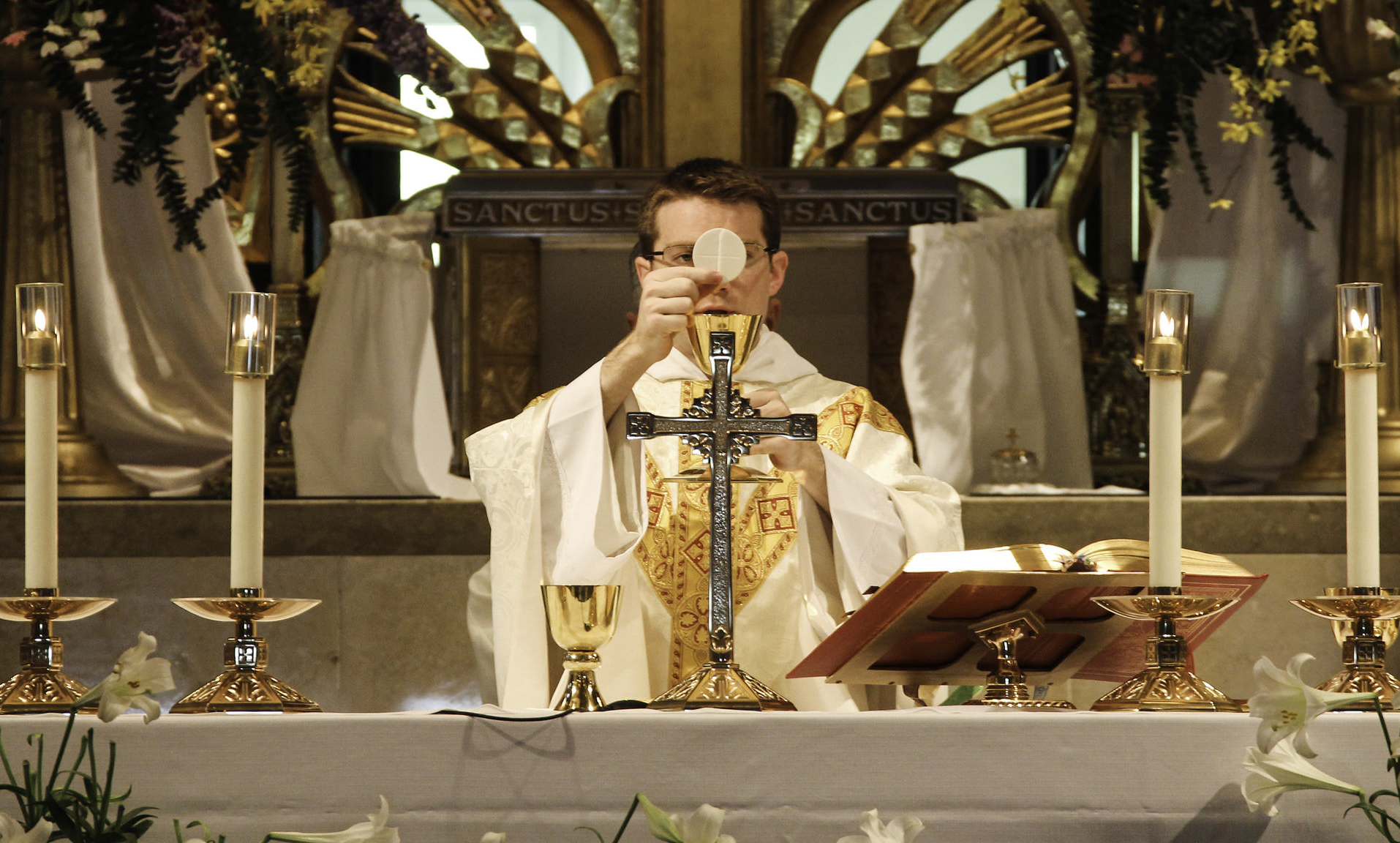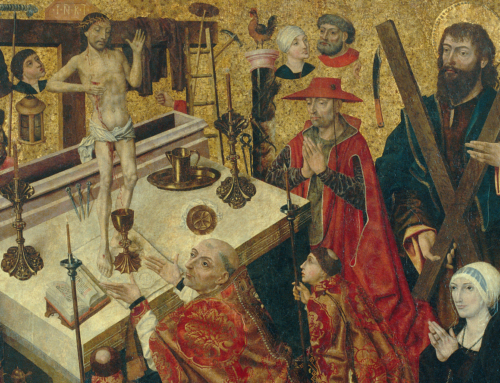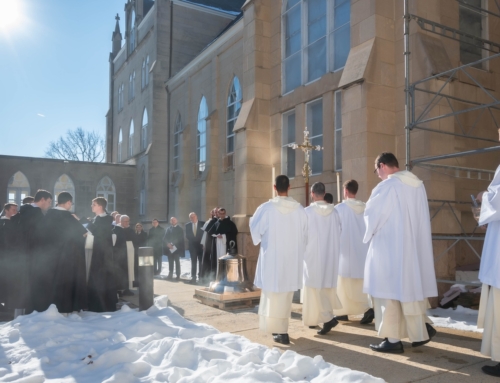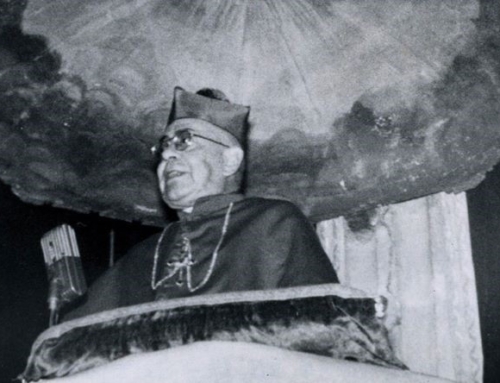“Behold, the Lamb of God.”
The priest lifts the Host up for us to adore our Lord Jesus Christ.
Jesus turned and saw them following him and said to them, “What are you looking for?”
We yearn for Him, long to see Him face-to-face, and our hearts pour themselves out in love:
“Rabbi, where are you staying?”
And Andrew and John followed Him (see Jn 1:36-38).
Are we also to stay with Jesus Christ? For some of us, most especially consecrated religious, staying with Jesus means actually living with Him constantly, as the apostles were called to do for three years. Throughout the day, we gather to pray, with Christ at our head in the tabernacle, asking Him to unite our prayer with His in perfect praise of our heavenly Father. We have our own rooms in the house, and He, too, resides in the same house. By living with Him, we are able to contemplate before the Eucharist every day as we strive to be ever more conformed to His likeness through an apostolic life.
But, is living with Christ reserved only for religious? Not everyone is called to the life of a consecrated religious, nor should everyone have this vocation. By their marriage, husband and wife must be a sign to the world of Christ’s love for His Church. Children must be raised in the faith. The priest preaches and confers the sacraments, but the lay faithful must bring the Gospel to every corner of the world through their professions. So, each has his or her proper place in the evangelical work of the Church, but still the question lingers: is living with Christ only for religious?
Behold the Lamb of God: He is in your heart. Jesus Christ comes to live as a friend with all who receive Him in the Eucharist. In a little book entitled From the Eucharist to the Trinity, Fr. Marie Vincent Bernadot, O.P., writes:
It is above all at the moment of Communion that this life overflows into me. But after the sacred species are consumed He dwells in my soul, because the Sacred Humanity continues to make me share in His life by means of His grace. I rest in communication with Him as the branch with the sap of the vine. Is not the union of the sap with the branch a lasting one? (35)
Christ’s coming to us in the Eucharist effects a union of our own body and soul with His own body, blood, soul, and divinity. He bestows His gift of grace in our hearts to make us ever more aware of His lasting spiritual presence, not in the sacred species of the Eucharist that only last physically for a time, but through the presence of the entire Trinity that dwells spiritually in us. As the Catechism says, “The ultimate end of the whole divine economy is the entry of God’s creatures into the perfect unity of the Blessed Trinity. But even now we are called to be a dwelling for the Most Holy Trinity” (260). Fr. Bernadot continues, speaking of the divine Persons, “They dwelt in our soul before Communion, and they remain after the Host has disappeared, but their presence is more intimate, for Communion has increased their influence and efficacity. After Communion, the capacity of the soul to receive God is augmented” (37).
The Eucharist, “the source and summit of the Christian life” (LG 11), is where we can begin to be more aware of how the Holy Trinity stays with us no matter what vocation we embrace. As we seek to know God within us, we can ask our Blessed Mother, who found Jesus in the Temple, to help us find Him in the temple of our hearts.
✠
Photo by Fr. Lawrence Lew, O.P. (used with permission).







